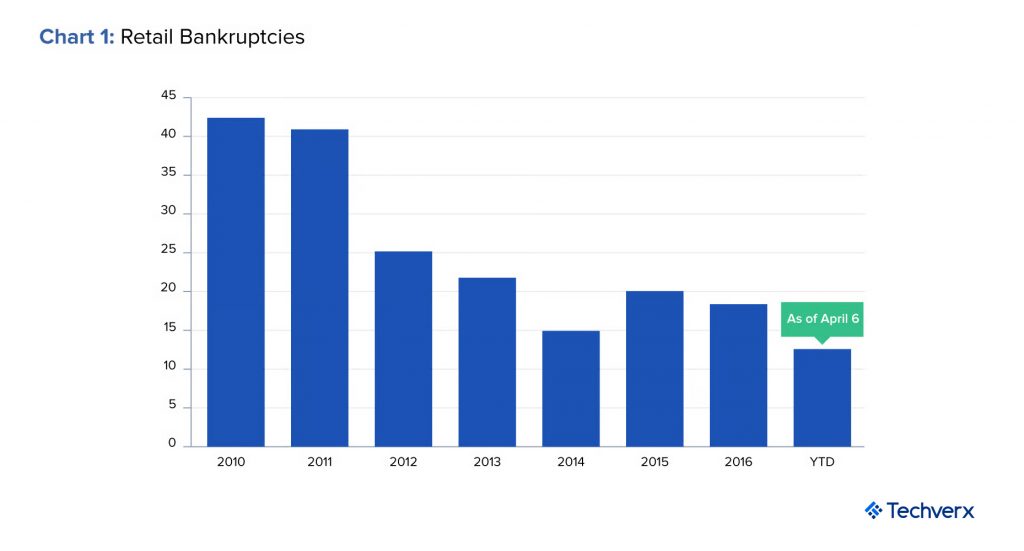
How to Build a Lean Ecommerce Development Team From Scratch

The migration from brick-and-mortar retail to online ecommerce is no longer a niche trendit, ‘s a seismic shift that has reshaped the global marketplace. While the world’s largest retailers were traditionally those with a massive physical footprint, the ground is rapidly moving beneath their feet. Recent data highlights an unprecedented rate of store closures, eclipsing even the numbers seen during the Great Recession of 2008.
What’s driving this transformation? The undeniable convenience of online shopping. As Credit Suisse analyst Christian Buss notes, “Today, convenience is sitting at home in your underwear on your phone or iPad.” This behavioral change is backed by staggering numbers. While physical store closures accelerate, ecommerce continues its relentless growth, with average annual growth increasing from $30 billion to over $40 billion in recent years.
For any business, from established manufacturers to ambitious startups, the question is no longer if they should sell online, but how. Before you can capture a piece of this multi-trillion-dollar industry, you must make a foundational strategic choice. Only then can you build the right team to execute your vision.

Step 1: First, Choose Your Battlefield (Your Ecommerce Model)
You can’t hire the right soldiers until you know what kind of war you’re fighting. In ecommerce, your strategy dictates your team structure. The primary models are:
- Direct-to-Consumer (DTC): You build your own branded website (e.g., YourBrand.com), control the entire customer experience, and keep all the profits. This offers the highest margin potential but requires the most effort in brand building, marketing, and technology.
- Selling Wholesale to an e-Tailer: You sell your products in bulk to an online retailer like Amazon, who then handles marketing, pricing, and fulfillment. This is similar to a traditional retail relationship but in a digital context.
- Selling on an Ecommerce Marketplace: You list your products on a platform like Amazon Marketplace, eBay, or Etsy. You control your brand and product, but the marketplace handles the traffic and payment processing in exchange for a referral fee (e.g., Amazon’s fee is often around 15%).
Private Label Supplier: You manufacture a product that another company sells under its own brand name on its website. This is the simplest option, requiring minimal marketing or brand-building effort on your part.

Your choice here is the single most important factor determining the composition of your development team. A full-blown DTC site has vastly different technical needs than a simple marketplace presence.
Step 2: Define Your "Lean" Philosophy
“Lean” doesn’t just mean “small” or “cheap.” A lean development team is an agile, cross-functional unit focused on delivering maximum value with minimum waste. Its philosophy is built on:
- Agility: Using methodologies like Scrum or Kanban to iterate quickly, test ideas, and respond to market feedback.
- Focus on Value: Every task and feature is prioritized based on its direct impact on the customer and the business goals.
- Cross-Functional Roles: Team members wear multiple hats. A developer might have a strong eye for design, or a product manager might be skilled in running analytics.
Smart Technology Choices: Leveraging platforms and tools that handle the heavy lifting, allowing the team to focus on what makes the business unique.
Step 3: Assemble Your Core Unit
For a lean team built from scratch, you don’t need a massive department. You need a small group of highly-skilled individuals who can cover the essential functions.
The Essential Roles:
- The Visionary: Ecommerce Product Manager This is your team’s strategic leader. They don’t just manage tasks; they own the “why.” This person translates business goals into a product roadmap, prioritizes features, analyzes data to make informed decisions, and is the ultimate voice of the customer. For a lean team, this role is crucial to prevent wasted effort on features that don’t drive sales.
- The Architect: Full-Stack Developer In a lean context, you need a versatile developer, not separate backend and frontend specialists. This “full-stack” professional is a jack-of-all-trades who can:
- Build the Frontend: Write the HTML, CSS, and JavaScript that customers see and interact with.
- Manage the Backend: Handle the server-side logic, database management, and critical integrations with payment gateways and shipping APIs.
- Handle DevOps: Manage hosting, deployment, and ensure the site is fast and secure.
The Experience Crafter: UI/UX Specialist This role is dedicated to the user. How easy is it to find a product? Is the checkout process seamless? Is the site intuitive on a mobile device? The UI/UX (User Interface/User Experience) specialist designs the customer journey through wireframes, prototypes, and visual design. In a hyper-lean team, you might find a developer with strong UI/UX skills, but having a dedicated focus on experience is a key differentiator between a site that converts and one that frustrates.
Tailoring the Team to Your Strategy
Now, let’s connect these roles back to your chosen business model.
- For a Direct-to-Consumer (DTC) Team: This model requires the most robust team, as you are building everything. Your lean team would consist of a Product Manager, a Full-Stack Developer, and a UI/UX Specialist. The developer will be heavily focused on building a custom or heavily-customized platform (like Shopify Plus, Magento, or a custom build), while the UI/UX specialist ensures your brand’s unique experience shines through.
- For a Marketplace/Platform Team (Amazon, Shopify): This is where a team can be exceptionally lean. The platform handles the backend, infrastructure, and checkout process. Your needs are simpler:
- An Ecommerce Manager/Specialist: This person functions like a product manager but is focused on optimizing listings, managing promotions, analyzing sales data within the platform, and coordinating inventory.
- A Frontend Developer/Designer (Optional but Recommended): While not always essential, someone skilled in creating custom marketplace storefronts or Shopify themes can give you a significant competitive edge over sellers using default templates.
For Wholesale or Private Label Models: Here, a “development team” may not be necessary at all. Your primary need is an Ecommerce Operations Manager who can manage data feeds, coordinate with the retailer’s technical team, and ensure your product information is accurate and syndicated correctly. The technical lift is almost entirely on your retail partner.
Why Techverx Is the Right Partner for Lean Ecommerce Builds
Building a lean ecommerce team isn’t just about hiring fewer people—it’s about hiring smarter, integrating faster, and staying laser-focused on customer outcomes. That’s where Techverx brings distinct strategic value. As a tech partner experienced in launching and scaling ecommerce ecosystems, Techverx empowers brands—especially startups and mid-sized businesses, to get to market faster without compromising performance, quality, or flexibility.
1. For DTC Brands: We Build the Engine That Drives Your Brand
Launching a Direct-to-Consumer site demands complete control over customer experience, brand storytelling, backend functionality, and performance. Techverx provides a cross-functional pod that includes:
- Full-Stack Developers who can work across Shopify Plus, Magento, WooCommerce, or even fully custom stacks using React, Node.js, or Laravel.
- UI/UX Designers who specialize in ecommerce behavior flows, ensuring that your site isn’t just beautiful—but also optimized for conversion across mobile and desktop.
- QA Engineers to ensure every update, checkout flow, and product page works without friction—especially during seasonal spikes or promotions.
- DevOps Experts who automate deployments, manage infrastructure, and keep your site fast, scalable, and secure.
And because we understand lean execution, we ensure your MVP or first launch doesn’t become bloated. We help you prioritize must-haves vs. nice-to-haves, enabling iterative releases tied directly to growth metrics.
2. For Marketplace Sellers: We Help You Outperform the Algorithm
Selling on Amazon, Etsy, or eBay may seem simple—but competing effectively isn’t. Techverx brings in technical muscle to give you an edge with:
- Custom storefront design for platforms like Shopify or Amazon Stores—for sellers who want to stand out with rich visual branding.
- Data analytics and dashboard integrations so you can track performance at SKU level, optimize pricing and promotions, and sync inventory across multiple marketplaces.
- API-level automation to connect your backend tools (like ERP or CRM) with the marketplace, so your operations don’t lag behind your growth.
We don’t just make you visible—we help you become a high-converting, operationally sound seller in crowded marketplaces.
3. For Wholesale and Private Label Models: We Streamline Backend Operations
If you’re not focused on consumer-facing sites but need seamless B2B integration and product data syndication, Techverx acts as your silent tech backbone. We support you with:
- Data feed management tools that push real-time product updates to your wholesale partners.
- Integration with third-party logistics (3PL) and ERP systems to keep your inventory and supply chain synced.
- Custom portals or dashboards for your partners to manage orders, track shipments, and access product assets—all while keeping your own overhead lean.
Our developers specialize in integrating with complex partner systems, whether that’s a retailer’s vendor portal or a custom XML feed structure.
4. Lean by Design, Fast by Nature
At Techverx, we don’t believe in overengineering. Our teams operate in agile sprints, continuously deliver working features, and adapt fast to changes in business direction or consumer behavior. We embed directly into your tools—Slack, Jira, Trello, GitHub—and mirror your timezone for real-time collaboration.
We bring experience across:
- Multi-channel ecommerce architecture
- Checkout optimization and A/B testing
- Loyalty and CRM integration
- Subscription model implementation
Headless ecommerce frameworks for advanced flexibility
5. From MVP to Market Fit and Beyond
If you’re starting from zero, Techverx is the partner that can take you from idea to live product with a lean core team—and then help you scale intelligently. And if you’re already live but hitting bottlenecks in speed, UX, or operations, we can audit your tech stack and recommend lightweight improvements that unlock growth.
Whether you’re a founder looking to prove your ecommerce concept, or a retail operator planning a digital shift, Techverx gives you the technical confidence to move fast—without burning cash.
Why Techverx Is the Right Partner for Lean Ecommerce Builds
This is where Techverx becomes indispensable. We don’t just offer developers—we help companies build lean, agile ecommerce tech teams that actually deliver. Whether you’re an early-stage startup or a brand pivoting to digital, Techverx acts as your plug-and-play product+engineering unit, fully aligned with your business goals.
We work with you to:
- Validate MVPs and product concepts
- Scale platforms with agility
- Integrate with marketplaces, payment systems, and CRMs
- Design and deploy modern, performant UX across devices
Let’s look at two real-world case studies to understand how Techverx supports ecommerce-focused businesses:
Case Study 1: Compliance Made Scalable for QCS (Quality Certification Services)
Challenge: QCS needed to automate USDA label compliance reviews—a complex process involving countless product formats and strict regulations.
Techverx’s Lean Team: 1 Senior Engineer, 1 Project Manager
Tech Stack: Nuxt, Vue.js
Timeline: 3 Weeks
Solutions:
- Built an end-to-end AI-powered pipeline to automate product label verification using Computer Vision, OCR, and LLMs.
- Incorporated flexible rule systems to handle evolving compliance needs.
- Delivered a platform that could process images and PDFs in seconds—vs. hours of manual review.
Impact:
- 90% success accuracy in label processing
- 90% increase in team productivity
- Processing time dropped to 3 seconds
- Manual effort reduced dramatically
What This Shows: Even in complex compliance-heavy environments, a lean, hyper-specialized team from Techverx can deliver enterprise-grade automation in under a month.
Case Study 2: Scalable Ecommerce Device Software for Aroma Retail
Challenge: Aroma Retail’s Wi-Fi-enabled scent machines suffered from unreliable app performance, connectivity issues, and a clunky platform built by a previous vendor.
Techverx’s Lean Team: 1 Technical Lead, 1 Hardware Engineer, 2 Full-Stack Developers
Tech Stack: Xamarin, .NET, ESP32, MAUI
Engagement: Ongoing support & maintenance
Solutions:
- Re-architected platform for stability and scalability
- Reduced device pairing time from 60s to near-instant
- Implemented CI/CD for structured, fast deployments
- Improved testing and QA, reducing app crashes by 70%
Impact:
- Drastically fewer customer complaints
- Faster feature delivery
- Support tickets dropped significantly
- Platform now supports hardware expansion
What This Shows: For IoT-enabled ecommerce brands, Techverx can seamlessly take over legacy systems and transform them into scalable, future-ready platforms—with minimal disruption to business.
Final Word: Techverx Delivers What Lean Ecommerce Teams Actually Need
Whether you’re launching your first DTC brand, integrating with Amazon, or scaling hardware-enabled ecommerce, the truth is: speed, specialization, and system thinking are everything. Techverx delivers all threew, ithout bloated teams or wasted time.
With Techverx, you’re not building a site. You’re building a business infrastructure that’s agile, conversion-focused, and ready to scale.
The path to ecommerce success is paved with the cautionary tales of businesses that either over-invested in a massive, slow-moving tech department or under-invested and failed to execute their vision.
The lean approach offers a smarter path forward. By first aligning on a clear business strategy—be it the high-risk, high-reward DTC model or the low-risk, steady-growth marketplace model, you can build a team that is perfectly sized and skilled for the mission. Start small, focus on value, and let your strategy dictate your structure. This is the blueprint for building a nimble and powerful ecommerce development team capable of winning in the digital age.
Ready to build your team of tomorrow? Talk to a Techverx consultant today
Hiring engineers?
Reduce hiring costs by up to 70% and shorten your recruitment cycle from 40–50 days with Techverx’s team augmentation services.
Related blogs


